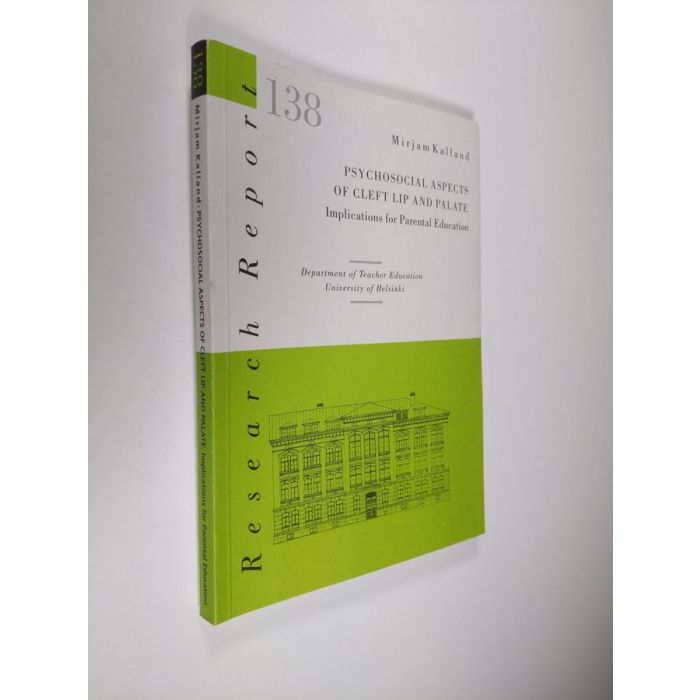Mirjam Kalland : Psychosocial Aspects of Cleft Lip and Palate - Implications for Parental Education
This study focused on the psychosocial aspects of cleft lip and/or palate on maternal emotional reactions and the family, with emphasis on the effect on the maternal-infant bond. Interviews were conducted with 40 mothers of 1-year-old infants with non-syndromic cleft lip and/or palate. The interviews were analyzed using the phenomenological method, which is explained. The focus was the unique interpretation of the mothers' experiences. The main result was that a defect that interfered with feeding disturbed the early maternal-infant bonding process more than a defect that only interfered with the child's appearance. Additional findings include: the birth of a child with a cleft is considered a shock by most mothers; the most severe problem has been the feeding problem; surgery, even if desired, is considered as a shock by most of the mothers; feelings of depression, fear, or bitterness are common among mothers of infants with a cleft; and the information that the mothers received at the hospital when the baby was born was inadequate. Descriptions are included for three cases involving different types of cleft: cleft palate, cleft lip, and cleft lip and palate. Implications for parent education are discussed, such as the importance of providing parental support to facilitate successful parenting, parents' need for information, and the importance of contact and a sense of community. (Contains 209 references.) (SW).
* The description may refer to a different version of the product. Details mentioned in the description, such as accessories, may not be part of the product you have selected. For detailed information about the product you have selected, please refer to the feature list below.
| Categories | |
|---|---|
| Author | Mirjam Kalland |
| Title | Psychosocial Aspects of Cleft Lip and Palate - Implications for Parental Education |
